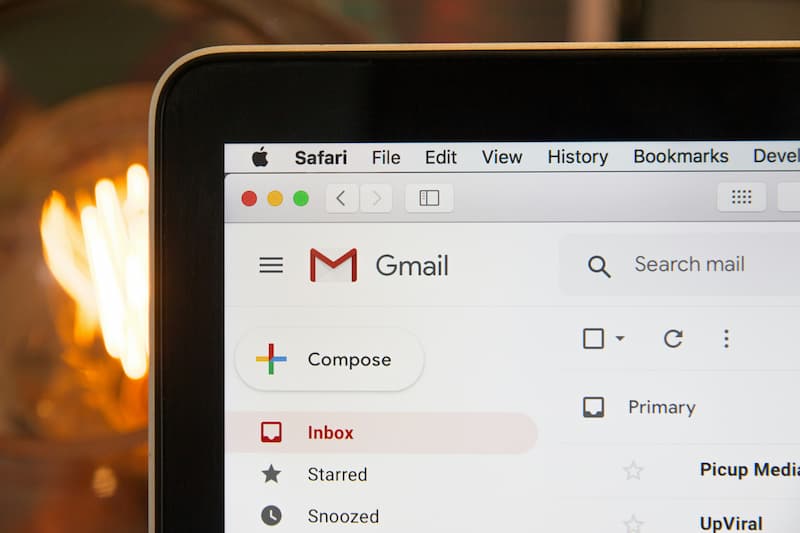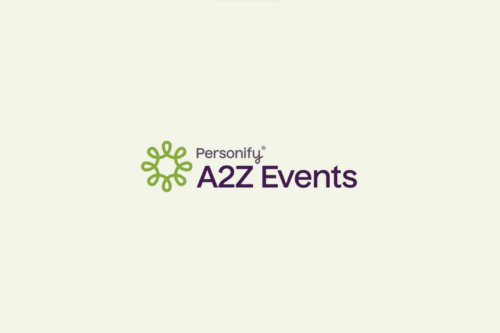Email marketing is a powerful conversion driver for many organizations; however, getting consumers to actually read emails is a massive challenge. In fact, nearly four out of every five emails go unread by recipients. In other words, even if your emails are great, they’re useless if nobody reads them. Therefore, anything you can do to get your emails opened is highly desirable. Fortunately, there’s one aspect of email open rates that’s directly in your control — one that’s unique to event marketing.
Event emails inherently have one significant advantage that other types of emails don’t — the factor of urgency. Below, you’ll learn why urgency matters, how to leverage it to create FOMO (fear of missing out), and how to create subject lines that drive recipients to take action immediately. Just as importantly, you’ll learn what not to do with your event subject lines. Let’s take a look at why event email subject lines matter and how you can use them to engage recipients.
Importance of Event Email Subject Lines
As we now know, nearly 80 percent of emails are never opened by the people that receive them. It’s not hard to imagine why. Today, people are bombarded with emails like never before. The average person receives more than 120 emails per day. Fighting for the attention of people is very challenging no matter what, and that’s especially true when you have to fight 120 other companies for the prime real estate in an individual’s inbox.
That’s why email subject lines matter so much. The subject line is your chance to stand out from the competition. It’s your opportunity to make an impression on the recipient, so that your email is in the 20 percent of emails that get opened.
In event marketing, it’s crucial to have your subject lines as clean and as attention-grabbing as possible. That’s because events have multiple time-sensitive dates, and it’s your job as a marketer to make sure consumers are as informed as possible. A customer who can’t get tickets because they missed an on-sale date is a lost customer, and one you’ll have to work very hard to regain. By communicating in a way that both informs and demands attention, you’ll not only excel in marketing, but you’ll also keep your customer base happy at the same time.
Best Practices for Crafting Event Email Subject Lines
While it’s undoubtedly difficult to create a subject line that demands attention, it’s far from impossible. Here are some of the most important elements of a great event email subject line.
Creating a Sense of Urgency
As mentioned earlier, urgency is something that’s an inherent advantage in event marketing. It’s an emotion marketers often try to create, through expiring sales dates, flash sales, and similar types of calls to action. But when it comes to events, there’s no need to artificially manufacture urgency. It’s already baked into the equation.
This allows you, as a marketer, to convey urgency without being dramatic or exaggerating. There’s always a date or a time range you can use to implore recipients to take action. Use these real-life constraints to their fullest potential and urge your audience to avoid missing out. Include references to upcoming sale period start dates, end dates, and send out email updates frequently. Not only is this a helpful way to encourage activity, but it also fosters an increased state of urgency.
Using Emotional Appeal
Though time-sensitive materials will encourage action in some cases, they won’t always work. There’s more than just dates at play. You want people to take action because of what they’ll experience at the event — and the right subject line will get their imaginations going.
Emotional triggers can help connect people to the event in question, and by extension, will make them more likely to read your email. Emotions like excitement, energy, vibes, and even volume will help people to visualize themselves at the event. When that image gets in their mind, they’ll be more inclined to open the email and see the information you’re passing along. Use descriptive words, reference specific things that may happen at the event, and hint at the sights and smells that the reader can expect to experience at the event. These will help to further paint that picture — one that will make the email recipient feel more strongly about attending.
Leveraging the Fear of Missing Out (FOMO)
FOMO might be a modern phrase, but the psychology behind the concept has long been a staple of marketing. Each event should be presented as a once-in-a-lifetime, must-see event — and each one is! Therefore, your subject lines should reflect this mentality.
If people think that an event is no big deal, they’ll likely miss it among the email clutter. Present the event you’re promoting as an unforgettable event — one the recipient will kick themselves if they miss out on. The subject should hint at how fun and exciting the event will be, and also speak to its scarcity. If the reader moves on and doesn’t attend, they’ll miss out, and they’ll feel very jealous of their friends in attendance. When you instill that fear of missing out, it prompts readers to take swift action. Make reference to the scarcity of the event and the fact that it’s something that won’t be available beyond this time period. Anything you can say to make your readers not want to miss the event is a very wise inclusion.
Including Promotional Offers
Sometimes, urgency and FOMO just aren’t enough. Even if someone really wants to go to an event, they might not have the money to do so. Maybe they’ve just attended an event recently, or perhaps life is simply getting in the way. The problem is, even if someone can’t attend for financial reasons, you’ll never know that’s the reason why — you just won’t get their ticket revenue.
Make it easy for people who might not otherwise be able to attend. Promotional offers can be a massive incentive for people who are going through a difficult time, students who don’t have a lot of funds, or anyone who would appreciate a good bargain. Highlighting the promotion will not only increase the chance of your email being opened, but it’s also something that might be passed along to friends. It’s a great way to spread the word about a deal that can be utilized by many people.
Using Informational Subject Lines
Event email subject lines don’t have to be all hype and FOMO. They can serve a simple, practical purpose — to inform the reader. The Gmail app only shows about 70 characters of email subject lines. If the important information is after a topic the reader isn’t moved by, they might miss out on learning something important about the event.
Providing valuable information isn’t as sexy as some other subject lines, but it serves an essential purpose. It also may speak to a reserved individual who just wants specific information about an event, as opposed to an emotional plea or a promotional offer. This type of subject line is essential for any email marketer — it’s not necessarily suitable for 100 percent of emails, but it plays a vital role in any event marketing campaign. It’s also the easiest possible subject line to write — it’s an instance where the subject literally writes itself.
18 Best Email Subject Lines for Event Invitations
Knowing what beats to hit in the subject line is only half the battle. Actually using these tips in real life is a different challenge altogether. Here are 18 sample email subject lines you can use for your next event.
- (Name), (Event) is coming to town. Don’t miss it!
- Don’t miss out! Tickets to (Event) go on sale TODAY!
- (Event) is coming to (Venue), (Name). Be there.
- (Event). (Venue). (Date).
- (Event) is coming to your city, (Name). Get your tickets now!
- Busy this weekend, (Name)? You are now.
- Ticket presale for (Event) starts TOMORROW!
- Grab a friend, (Name) — BOGO tickets available now!
- (Event) is coming to (City). It’s going to be loud!
- Get ready to dance! (Event) is happening (Date)!
- (Event) is on sale now. This WILL sell out!
- 10% off (Event) tickets! Today only!
- (Event) won’t be back for a long time. Don’t miss out!
- Don’t miss your chance to see (Event) for the first time!
- Important information about (Event)
- URGENT: Ticket presale for (Event) happening NOW!
- You’ve always wanted to see (Event). Now’s your chance.
- (Name), it’s your lucky day. Tickets for (Event) on sale today!
Writing a Preheader to Complement Subject Lines
The subject line is a vital part of email marketing, but it’s not the only thing people look at when they decide whether or not to open an email. The preheader is the little bit of text that appears in the reader’s mail app just after the subject. It’s not visible within the email, but it absolutely plays a major role in your email open rate.
The goal of the preheader is to build on your subject line. Because emails are mostly viewed on phones, and because your main goal with subject lines is usually to attract attention as opposed to providing tons of information, you need something else to entice viewers to open the email. If the subject line is the attention grabber, the preheader gives additional information that shows the reader exactly what they can expect to receive when they open your email. For example, if your subject line is “(Event) is coming to your city. Get your tickets now!”, your preheader can include information about the venue, date, time, and ticket on-sale date.
Much like subject lines themselves, email preheaders need to be short and sweet. Aim for one sentence between 30 and 80 characters in length. That might seem short, but it’s enough to get your point across without being long-winded. After all, your goal is to get people to open your email, not tell them everything they need to know. Your preheader should also end with a call to action. This will likely be the same call to action included in the actual email, but it’s good to include it in the preheader so you can start to work the magic of urgency and FOMO. It also informs the reader of key dates surrounding the event, so they know when to take action.
When done right, the preheader acts as a perfect companion to the subject line. The combination of both should have people scrambling to open your email immediately.
Email Subject Line Mistakes to Avoid
We’ve talked a lot about what you should do to make your event subject lines as good as they can possibly be. But what about what not to do? Here are some things to avoid when crafting event email subject lines.
- Don’t write in all caps. Nobody likes this. Literally, nobody. And if you do it too much, people will roll their eyes and move on from your emails — the exact opposite of the reaction you want people to have. The occasional capitalized word conveys emotion and excitement, but be careful not to overdo it.
- Don’t miss the point. A lot of companies try so hard to be catchy and attention-grabbing that they forget to actually sell their product. This leads to a missed opportunity for the consumer. In event marketing, the event sells itself. You just have to get people to open the email. And the best way to do that is to give them enough information about the event to entice them to learn more.
- Don’t mislead the reader. We know that FOMO and urgency are important aspects of event email subject lines, and they should definitely be incorporated where appropriate. However, don’t mislead or lie to your audience. Doing so will turn people not only against your company, but against the event itself.
- Be careful with emojis. Emojis can be useful in capturing the attention of busy email checkers. To other people, though, emojis can come across cringey and try-hard, and they may not even display properly on some people’s devices. They also can’t be searched for. The occasional emoji to attract attention is fine, but let the facts in your subject lines do the vast majority of the talking.
- Don’t forget to clearly state your objective. This comes back to searching through emails. You want people to be able to find emails about your event when they need to. Misleading subject lines, incomplete preheaders, and even email bodies that don’t provide relevant information will make it impossible for potential event attendees to find your event details in their inboxes. Instead, focus on making your communication as clear as possible, so that it’s easy for people to find later.
Conclusion
Writing email subject lines for events is all about conveying the mood you want the recipient to feel. You want them to feel enough urgency to take action now. You want them to experience FOMO so that they’ll desperately want to attend. You want to appeal to their emotions so they’ll visualize themselves at your event. You want them to be aware of the timeframes, costs, and promotions involved so they can buy tickets at the appropriate times. And you can do all of this through your email subject lines.
Over the course of an event marketing campaign, you’ll use all of the above factors in your subject lines. Use each of them to your advantage at the appropriate times. Give people something special to read, and they’ll be much more likely to open your messages.










